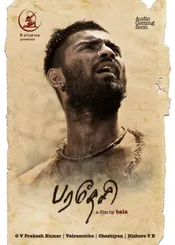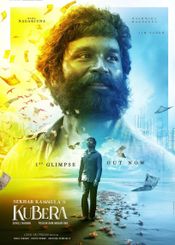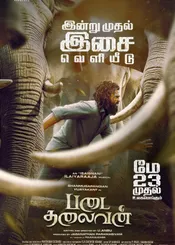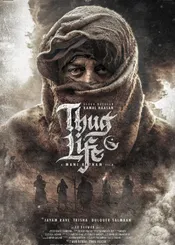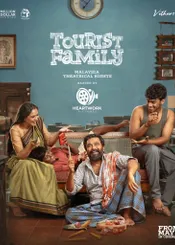Paradesi is a 2013 Indian Tamil period drama film written and directed by Bala starring Atharvaa, Vedhicka and Dhansika. The film's music was scored by G. V. Prakash Kumar. The film was based on novel Eriyum Panikadu, Tamil translation of English novel Red Tea by Paul Harris Daniel and inspired from real life incidents that took place before independence in the 1930s. It was released on 15 March 2013. The dubbed version of Telugu was released with the same name. The film opened to positive reviews. and become an above average success.
Casting
Crew
Director
Producer
Music
Cinematography
Editor
Production
Distribution
Costume Designer
Costume Designer
Details
- Status Released
- Release date 15 Mar 2013
- Running time 2h 6m
- Genres Drama, History
Awards
FAQs
Raasa (Atharvaa) is a carefree young man living in a rural village in the Madras Presidency during the early days of the British Raj. Orphaned at a young age, he is brought up by his grandmother. Angamma (Vedhika), a local girl, falls for him and takes pleasure in bullying him. When she finally confesses her feelings for him, they become intimate and soon reveal the fact that they are in love before the entire village. Angamma's mother objects as Raasa is unemployed and irresponsible, making him undeserving of marrying anyone.
Raasa then goes to the nearby village in search of work. He comes across a friendly Kangani, who then follows Raasa back to his village. The Kangani offers a work for the villagers at the British tea plantations at the hillside. He promises them proper accommodation and high wages. Like many of the villagers, Raasa signs up with the Kangani, hoping that he can send home money every month for his ailing grandmother. Both Angamma and his grandmother are sad to watch him leave.
When Raasa and his villagers finally arrive at the tea plantation, things are not as what the Kangani promised. The Kangani and his henchmen rule the plantation with an iron fist. The British plantation manager does not care for the workers. Raasa becomes friends with Maragadham (Dhansika) and her little daughter, the wife and child of the only worker who have ever escaped the plantation so far. Raasa soon gets a letter from his grandmother stating that Angamma now lives with her after her family found out she is pregnant with his child.
It is soon revealed that all the workers' daily wages go to their food and lodging. Raasa will have to work there for many more months if he wishes to leave the place. Maragadham too has to work for both her time and for her husband's contract. The workers finally realise that they have been made slaves to the British businessmen. Feeling homesick, Raasa tries to escape. Unfortunately, he is caught by the Kangani's henchmen and cuts the left leg main bone (fibula), just like every other worker who had tried to escape and failed.
An epidemic soon kills many workers in the plantation, including one of Raasa's villagers. During a tea party, an English socialite asks the plantation manager to bring in a real doctor to treat the workers. A doctor from Madras in the form of an Indian Christian convert and his English wife come to the plantation. However, rather than treating the sick workers, they spend all their time trying to convert them.
Raasa's time at the plantation draws to an end. Unfortunately, he cannot rejoice as Maragadham becomes ill and finally dies. He then adopts her daughter and awaits his time to leave. However, he is then told that by adopting Maragadham's daughter, he has also inherited both her parents' debt to the plantation and will have to work there for almost 10 more years to pay it all off. As he is lamenting his fate on top of a hill, he notices a new group of slaves being brought in. Among them, he sees Angamma and their son. He runs after them and in tears, tells them that they have both walked into the mouth of hell.
The film ends with a wide shot of the tea plantation and all its workers staring at Rasa crying his heart out.

No review available.
Write review
